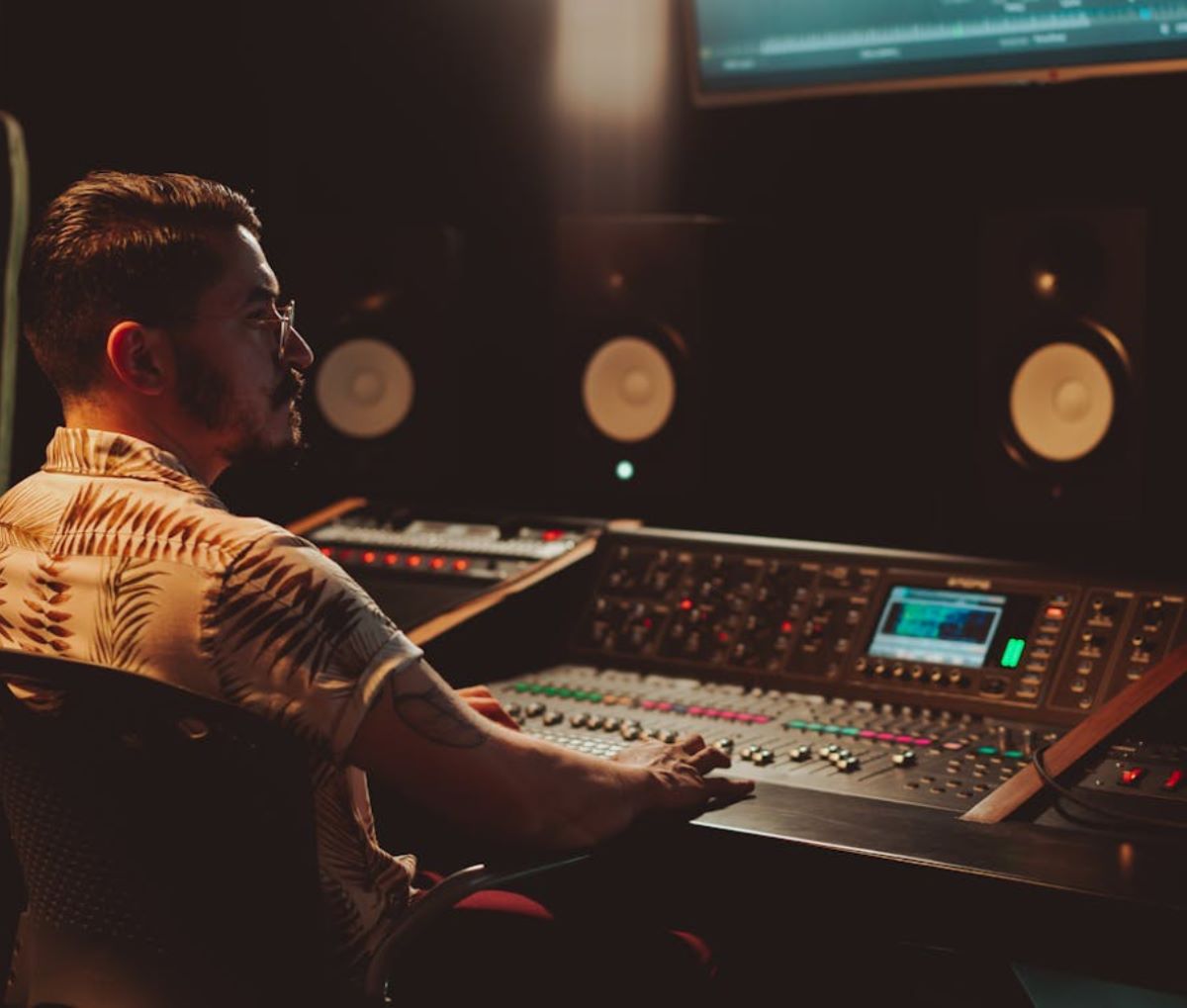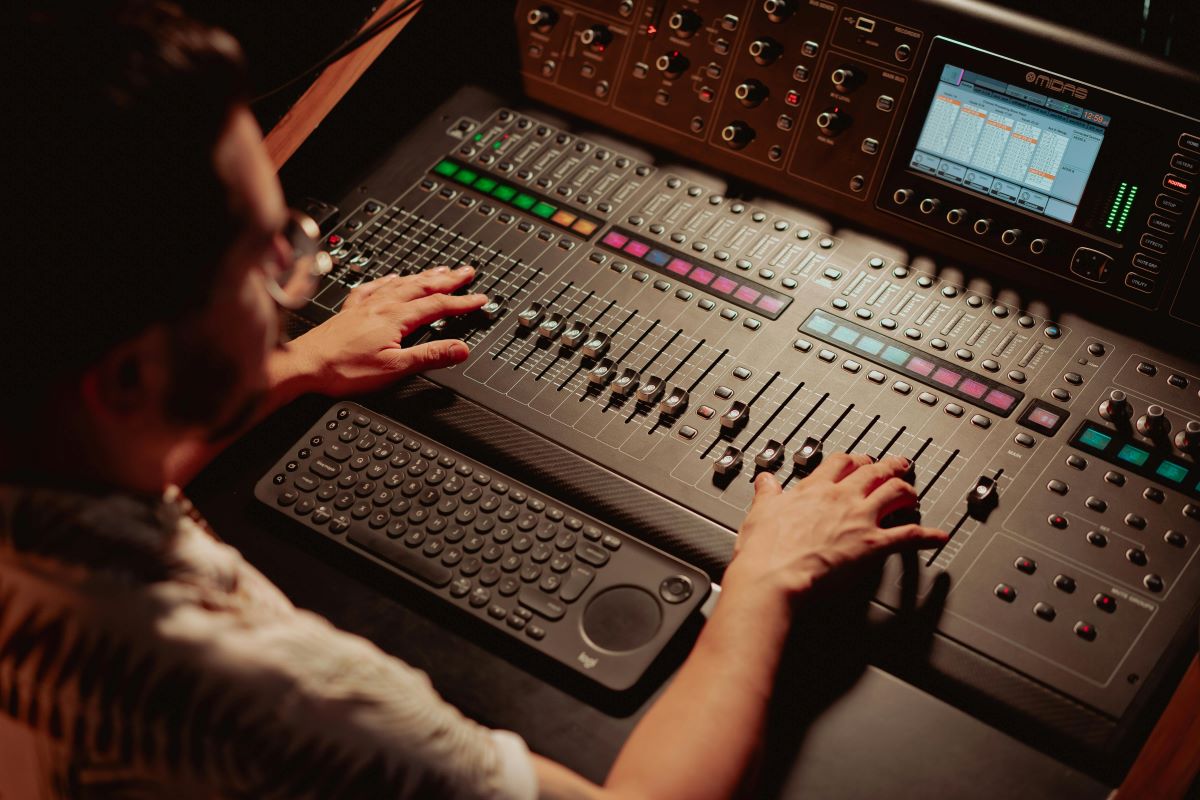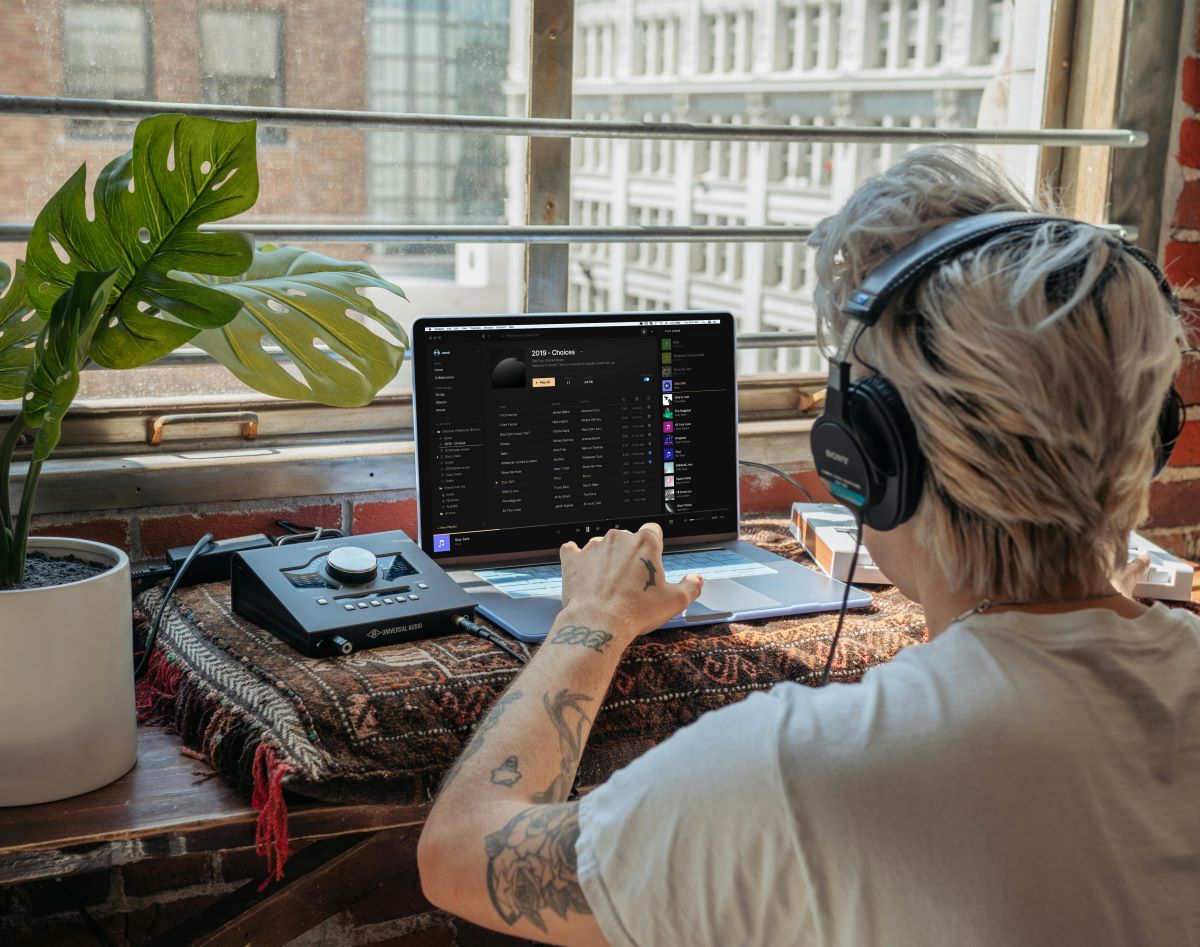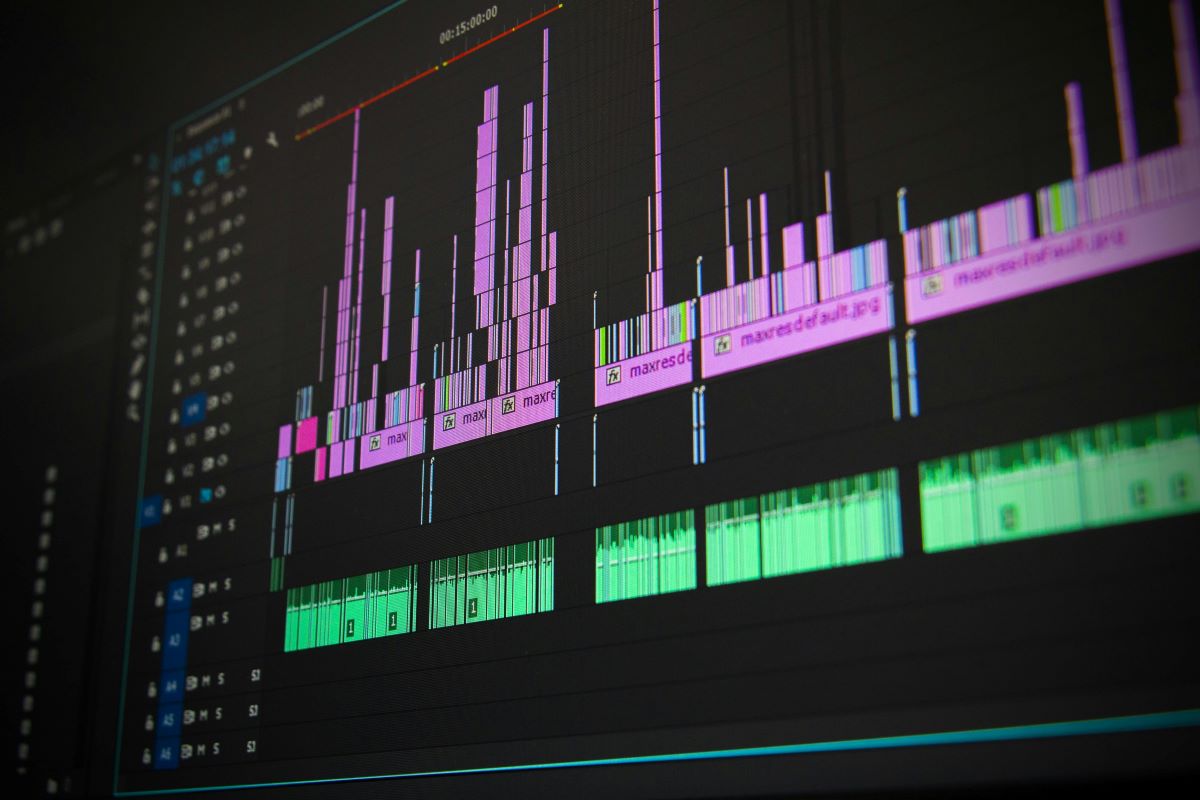

Impact of Audio Engineers on Post-Production
Client Education Aug 23, 2024 • 11 min read
Words by -
The creation of audio is an essential part of making videos and has a significant impact on how viewers experience the final product. It involves various technical and creative tasks, from capturing clear sound to refining and perfecting it for distribution. By focusing on every detail in sound design, audio production ensures that the sounds complement the visuals, resulting in a unified and captivating experience for the audience. Whether it's the clarity of voices, the quality of sound effects, or the depth of background music, every aspect of audio production is crucial in improving the overall quality of a video.
In post-production, the audio team's expertise extends beyond technical skills and involves a deep understanding of how sound affects the emotions and storytelling of the content. From recording to mixing and mastering, every step is carefully managed to create a balanced and immersive auditory experience. Challenges such as handling noise during filming, ensuring clarity in post-production, and optimizing audio for different platforms are all addressed to enhance viewer engagement. Ultimately, high-quality audio production is essential for creating memorable and impactful video content, ensuring that every sound element contributes to the overall impact of the visual story.
In this article, you will understand the role of Audio Engineers in audio production and why they’re important in post-production. And why Rubii’s is the best talent acquisition partner to help you find a remote-based audio engineer for your team.
What is Audio Production?

Audio production is an essential aspect of video production, requiring meticulous attention to detail and a thorough comprehension of the technical and creative facets of sound design. Through capturing high-quality sound, refining it to perfection, and mastering it for distribution, audio production aids in crafting an immersive and captivating viewing experience that captivates the audience's attention.
Let’s dive deeper into what happens in Audio Production and the role of an Audio Engineer in it:
Recording
The initial stage in audio production is the recording process, which encompasses capturing high-quality sound utilizing various methods and equipment.
This may involve:
- Recording dialogue, voiceovers, or sound effects using different types of microphones, such as lavalier, shotgun, or boom mics.
- Capturing live sound, such as music performances or ambient noise, using instruments, drums, or field recorders. Generating Foley sound effects, like footsteps, door creaks, or fabric rustling, to enrich the auditory landscape.
Mixing
Following the recording phase, the audio is mixed to harmonize and meld the different elements.
Mixing consists of:
- Adjusting levels, panning, and EQ to construct a unified soundstage. Incorporating depth and dimension through reverb, delay, and other effects.
- Crafting a clear and balanced mix to ensure that each element is audible and strategically positioned in the stereo field.
Mastering
The concluding step is mastering, which readies the mixed audio for distribution and playback across various platforms.
Mastering involves:
- Optimizing the audio for different formats, such as TV, film, streaming, or radio. Ensuring the audio is loud and clear, with consistent volume and tone.
- Making any final adjustments to EQ, compression, and limiting to ensure the audio translates well across different playback systems.
Importance in Video Production and for Post-Production

In video production, audio production plays an integral role in fashioning an immersive viewing experience.
Well-Crafted Audio
During post-production, audio engineers are responsible for capturing clear and high-quality audio. This includes recording dialogue, sound effects, and ambient sounds with precision. Proper audio capture at this stage ensures that the final product will have a clean soundscape, minimizing the need for extensive corrections later.
By having an Audio Engineer in your Post-Production could:
- Enhance the emotional impact of a scene, thereby increasing viewer engagement and investment. Provides clarity and intelligibility, guaranteeing that the audience can comprehend dialogue and follow the narrative.
- Create a sense of realism, thereby enhancing the believability and captivation of the visuals. Adds depth and atmosphere, utilizing sound effects and music to transport the viewer to new environments and emotional states.
Exemplary audio production can heighten the overall quality of a video, making it more compelling, memorable, and effective in conveying its message. Conversely, unpolished audio quality can ruin the viewing experience, making it challenging for the audience to concentrate and become engrossed in the content.
Managing On-Set Challenges
The on-set environment can be unpredictable, with various noises and interruptions impacting audio quality. Audio engineers have the expertise to minimize these disruptions and ensure clean sound recordings.
Enhancing On-Screen Action
In addition to managing audio quality, audio engineers can enhance on-screen action by skillfully integrating sound effects and background audio. This contributes to setting the stage, creating atmosphere, and adding depth to the visuals.
Refining Audio for Consistency
After filming, audio engineers’ step in to refine and balance the audio elements. They eliminate background noise, adjust levels, and ensure clear and intelligible dialogue, which is essential for maintaining consistency and achieving a polished final product.
Sound Design and Mixing
Post-production involves the intricate task of mixing multiple audio tracks, such as dialogue, music, and sound effects. Audio engineers use their expertise to seamlessly blend these elements, creating a cohesive and immersive audio experience through adjustments in volume levels, equalization, and the addition of effects to enhance the overall sound.
Mastering Various Formats
Audio engineers are responsible for ensuring that the final audio mix is mastered for various formats and platforms. This includes optimizing sound for different speakers, headphones, or streaming services, thereby upholding high audio quality across all devices.
Addressing Feedback and Revisions
During the post-production phase, audio engineers collaborate closely with directors and producers to address feedback and make necessary revisions, ensuring that the final audio meets the creative vision and technical requirements of the project.
Legal and Technical Compliance
Audio engineers also ensure that the audio elements adhere to legal and technical standards. This encompasses addressing copyright issues for music and sound effects, as well as complying with industry standards for audio quality.
The quality of audio has a direct impact on viewer engagement and emotional response. Clear dialogue, balanced sound effects, and a well-designed soundscape can significantly enhance the viewer’s immersion and connection with the content. Conversely, poor audio quality can detract from the visual elements and diminish the overall impact of the video.
Challenges in Hiring for Audio Engineer Jobs

Looking for Qualified Workers for Audio Production
Identifying skilled audio engineers who meet your project’s needs can be challenging. It’s essential to look for candidates with relevant experience and a proven track record. And this could be more challenging if your company has no experience in Hiring remote audio engineers. Hiring remote audio engineers would mean additional considerations, such as ensuring effective communication and collaboration across different time zones.
Assessing Skills and Experience
Assessing the skills and experience of audio engineers involves more than just reviewing resumes. Technical assessments, such as practical tests or sample projects, can provide valuable insights into a candidate’s proficiency with audio tools and techniques. Moreover, soft skills like problem-solving and creativity are equally important, as they impact an engineer’s ability to contribute effectively to your project and collaborate with your team. But not all in-house talent acquisition are knowledgeable in the everyday tasks and the ins and outs of the role.
Productivity and Accountability
When it comes to managing remote audio engineers, productivity and responsibility become particularly important. Establishing clear expectations and measurable objectives is crucial for maintaining productivity. Regular performance evaluations and feedback sessions can help keep projects on track and address any issues as they arise. Using project management software and regular reporting can assist in monitoring progress and ensuring that deadlines are met.
Equipment Procurement
Regardless of whether you're hiring locally or remotely, ensuring that your audio engineer has access to the necessary equipment and software is essential. This includes high-quality microphones, headphones, audio interfaces, and relevant recording and editing software. For remote engineers, additional considerations might involve providing technical support and ensuring compatibility with your company's systems.
Onboarding
Lastly, the onboarding process for a new audio engineer is crucial for their successful integration into your team. For remote hires, this process goes beyond familiarizing them with tools and processes; it involves integrating them into your team and helping them understand your project's goals and their role within it. Providing training, resources, and introductions to key team members can facilitate a smoother transition and help new hires become productive more quickly.
How Rubii can help you find Skilled Audio Engineers for your Audio Video Production

Rubii offers assistance to businesses in finding top-notch professionals, such as experienced remote audio engineers. With Rubii, you can easily pinpoint the ideal video editor for your company's production crew, without the hassle of sorting through countless CVs and work samples.
Finding Qualified Remote Workers for Audio Engineer Jobs
The process of choosing the perfect remote audio engineer can be overwhelming, especially if you're unsure of where to start. Rubii simplifies this process with its specialized recruitment services:
- Handpicked Talent Pool: Rubii provides access to a carefully chosen pool of top audio engineers who have undergone rigorous screening to ensure they meet industry standards.
- Simplified Hiring Process: Our services are designed to streamline and expedite the hiring process, saving you time and effort while connecting you with the most suitable audio engineers for your specific project needs.
- Efficient Recruitment: By utilizing Rubii's extensive network of elite talent, you can significantly reduce time and costs associated with traditional hiring methods.
Our professional recruiters enhances the quality of your hires and enables you to quickly assemble a team that aligns perfectly with your project goals and requirements.
Assessing Skills and Experience
Ensuring that you hire a highly qualified and skilled audio engineer is crucial. Rubii’s comprehensive assessment process provides:
- Thorough Screening and Evaluation: We conduct in-depth skill assessments and thorough evaluations during our interview process to ensure that candidates possess the necessary qualifications and expertise. This rigorous screening helps filter out those who do not meet our stringent standards.
- Network Referrals: Rubii’s robust client reviews and ratings system offers an additional layer of assurance. By reviewing feedback from previous clients, you can gain valuable insights into the professionalism and performance of the audio engineers you are considering for hire.
Productivity and Accountability
Managing remote audio engineers can present unique challenges, but Rubii offers solutions to ensure productivity and accountability:
- Real-Time Progress Tracking: Our advanced team management software allows you to monitor the progress of your remote audio engineers in real-time. This feature ensures that you stay informed about the status of tasks and projects.
- Clear Goal Setting and Deadline Management: Define and communicate clear goals and deadlines to keep your projects on track. Our platform helps you set specific milestones and track progress towards achieving them.
- Compliance Monitoring Tools: Utilize our time-tracking and screenshot features to monitor work hours, activities, and task completion.
These tools help ensure that your remote audio engineers adhere to company policies and maintain high standards of work.
Equipment Procurement
Audio Engineers need high-end equipment that matches the specific needs of their tools. Rubii simplifies the process of procuring equipment for your new remote hire through its automated system for requests, approvals, and vendor integration, making sure that the Audio Engineer gets the gear they need. We provide a personalized list of equipment tailored to different roles or departments, ensuring that new hires get the right devices within the company's budget.
Onboarding
To ensure a seamless onboarding of remote audio engineers into your team, it is crucial to have an efficient onboarding process. Rubii assists in this by:
- Creating and implementing customized workflows and checklists to automate and simplify the onboarding procedure, ensuring that new hires understand their roles and responsibilities from the beginning.
- Providing centralized access to all necessary project files, software, and tools, reducing the time and effort required to integrate a new remote audio engineer into your team.
Improving collaboration and communication with new audio engineers through the use of Rubii’s tools, thereby minimizing the risk of project delays and scope creep while increasing overall productivity.
Conclusion
Creating captivating video content that connects with viewers requires effective audio production. Recording, mixing, and mastering audio involves intricate processes that are crucial for achieving a refined and captivating end result. By tackling the challenges related to audio quality and recognizing the significance of sound in enriching visual narratives, video production teams can provide a cohesive and compelling viewing experience. Utilizing smart recruitment agencies like Rubii for talent acquisition and management can enhance the caliber and productivity of audio production, ultimately resulting in more impactful and memorable video content.
Are you prepared to begin your video projects? Get in touch with Rubii to start looking for new talent and seeking out audio engineers for your production. Click here to make contact.

